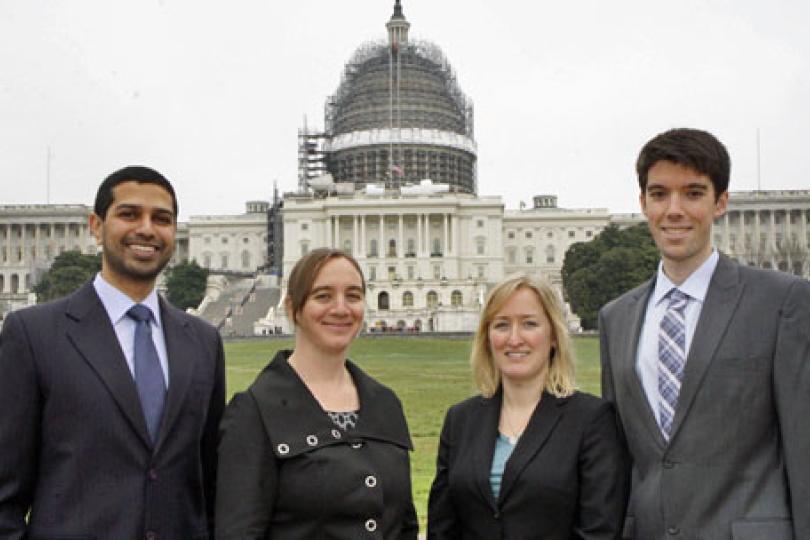Switzer Fellows Take Their Messages to DC
On March 13-14, 2016, staff and Fellows convened in Washington, DC, for our second annual Policy Communications training with our partners at COMPASS! We kicked off the training with our 30th anniversary reception at which nearly 70 alumni, Switzer family, and close colleagues gathered to celebrate all that we’ve accomplished in 30 years.
Twenty-four Fellows participated in the training, including all 2015 Fellows and three alumni who were recently awarded Leadership Grants. Goals of the training focused on messaging, and becoming familiar with the process of how experts inform policy decisions. One lesson that was surprising to most participants was that Congressional staff, agency leaders, and other decision makers are very accessible. Our current federal policy landscape may be divided, but there are smart, committed, earnest people working hard behind the scenes. This is heartening!
In our short time in DC, there were approximately 40 meetings scheduled between Fellows and legislative or agency staff in over 30 different offices. Fellows met with U.S. Congressional staff, federal agencies, NGOs, intergovernmental organizations and regional decision-making bodies. They offered a brief and well-practiced pitch about their work, offered to be available as a resource to ongoing or planned legislative efforts, helped legislative staff make important connections to other experts, and received valuable information about the policy landscape in which their work exists. The meetings lasted anywhere from 15 minutes to well over an hour.
Some Fellows were invited to continue advising policy makers on such topics as the use of drones for erosion mapping, food stamps and the next version of the farm bill, energy and hydropower relicensing, ocean sanctuary expansion, and western drought issues. Three Fellows will receive additional individual coaching from COMPASS to provide near-term advisement on active legislation including a draft Wildlife Corridors bill, the re-authorization of the Magnuson-Stevens Fishery Conservation and Management Act, and on potentially reviving a bill allowing for the declaration of a wildlife disease emergency in cases of infectious wildlife disease outbreaks (e.g., white nose syndrome in bats).
We’re thrilled to continue offering this important skills training which participants have once again rated very highly! Next year we will return to DC for another round, on March 11-13, 2017.
